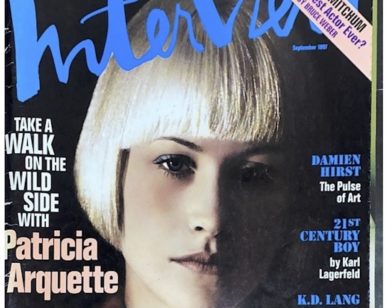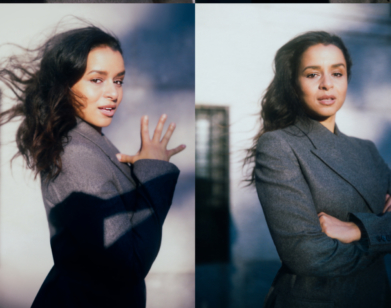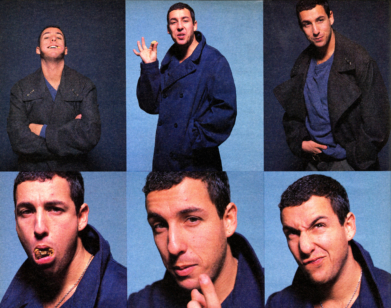Patricia Arquette Talks To Ben Stiller About Acting, Activism, and America
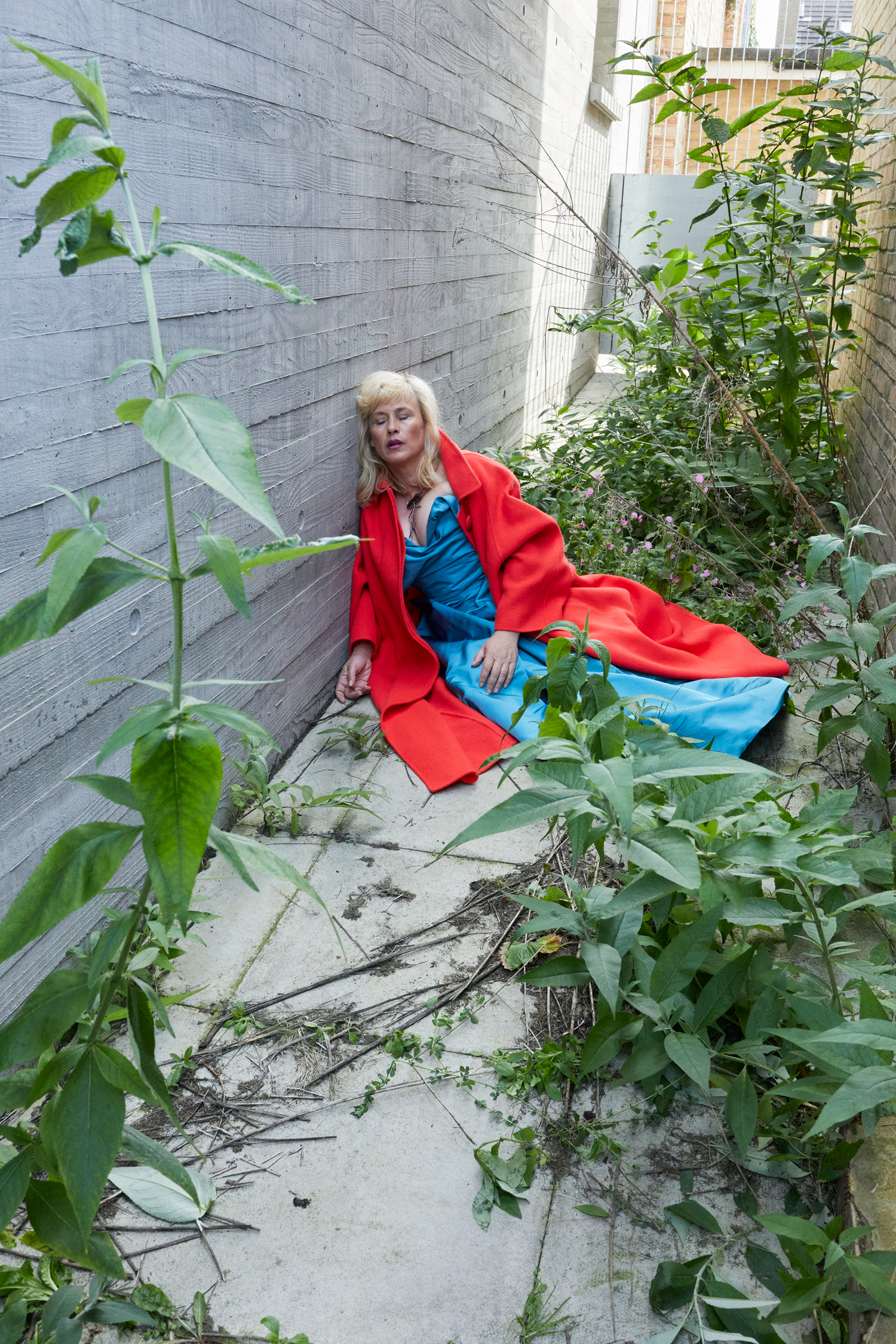
Coat by MARC JACOBS. Dress by VIVIENNE WESTWOOD MADE-TO-ORDER. Necklace by SOLANGE AZAGURY-PARTRIDGE. Ring by NOOR FARES.
Patricia Arquette has spent most of her life in front of an audience. But when she faced her biggest one yet, at the 87th Academy Awards, the 51-year-old actor made it count. Accepting the Best Supporting Actress Oscar for her role as a determined mother in Richard Linklater’s 2014 masterpiece Boyhood, Arquette detonated the auditorium with a breathless demand for equal rights for all women. It was a crowning moment in her 30-year career as much as it was an inflection point. Gone was the quirky sexpot who committed armed robbery on Christian Slater’s heart in True Romance, or the femme fatale sisters (or were they?) in David Lynch’s perverse neo-noir Lost Highway. Here, instead, was an activist.
Arquette’s post-Oscar path has been both interesting and unexpected. She has played the disgruntled daydreamer Tilly Mitchell in last year’s jailbreak miniseries Escape at Dannemora, for which she won a Golden Globe; Dee Dee Blanchard, the unofficial spokeswoman for Munchausen’s syndrome by proxy, in Hulu’s The Act; and, most recently, a doting mother who follows her son to New York City in Otherhood. That would have been enough—but not for Arquette, who found time last April to urge Congress to amend the U.S. Constitution by granting equal rights to women. It is, as she tells her friend and Escape at Dannemora director Ben Stiller, the most important role of her life.
———
BEN STILLER: Hey, hi. It’s Ben.
PATRICIA ARQUETTE: Hi! I’m in L.A. I just got back from London last night.
STILLER: You must be a little turned around. I’ll ask you some really deep questions. Can you look back on Escape at Dannemora and The Act and give yourself a pat on the back?
ARQUETTE: I don’t know. So much of this business is out of our hands. There’s been acclaim for the performances and for the projects themselves, so that’s really nice. It’s better than a poke in the eye, as my dad would say.
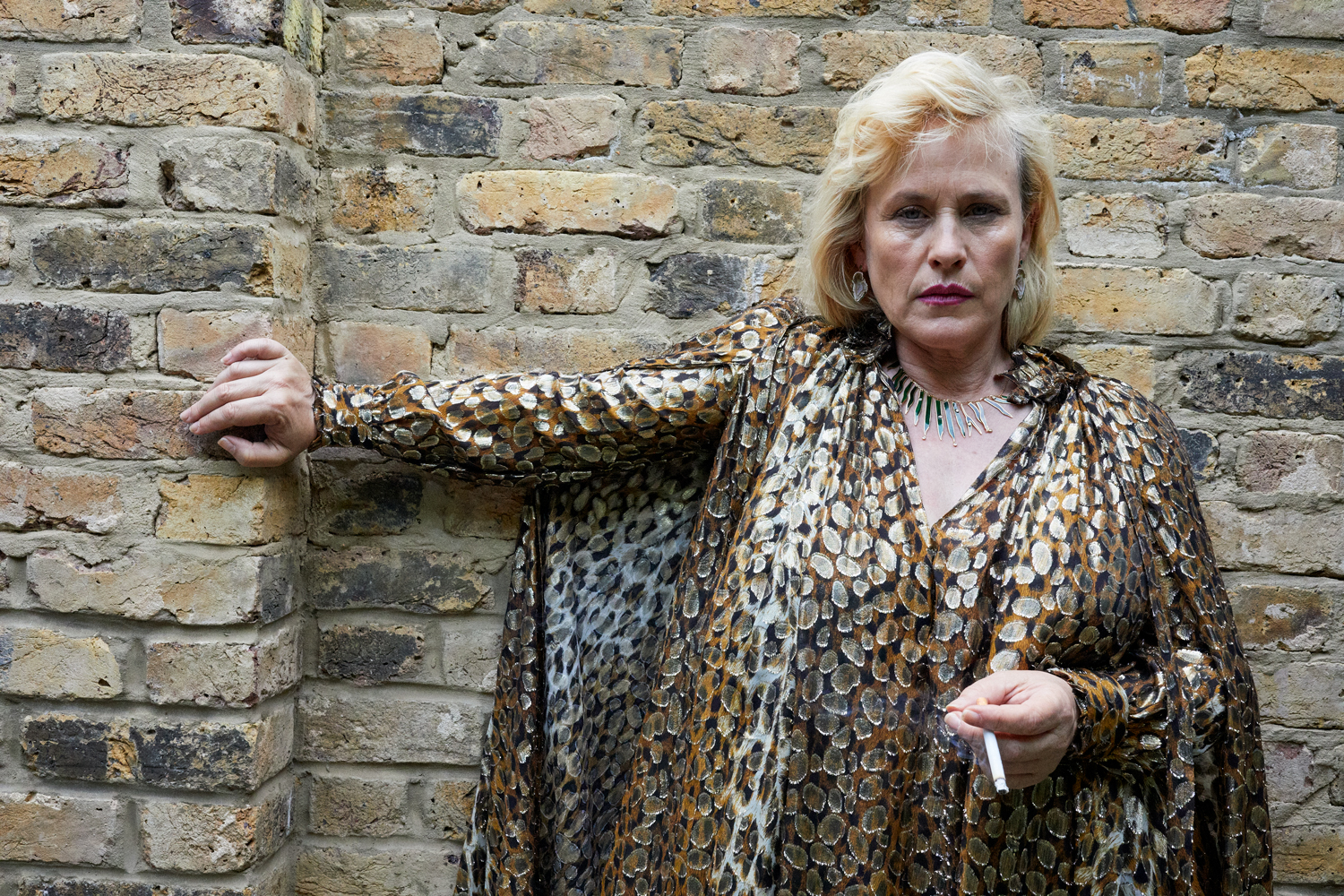
Dress by CELINE BY HEDI SLIMANE. Earrings by AMRAPALI. Necklace by SOLANGE AZAGURY-PARTRIDGE.
STILLER: Right, but you didn’t answer my question.
ARQUETTE: I do have a hard time patting myself on the back. I know I worked hard and grew as an artist, and I’m proud of myself for that. But I always think I could have done better.
STILLER: I feel like your focus is always on trying to do the best job you can in the environment that you’re in, and I notice that with how you deal with people on the set. You were always looking after the other actors.
ARQUETTE: I don’t know if part of that is just the subconscious conditioning of being a woman. Earlier in my life, I had to expend a lot more energy keeping my co-stars happy. Not in a weird way, but just keeping them in a good mood. I definitely had plenty of times when a producer was like, “Try to get them to come out of their room.”
STILLER: That was me on Flirting with Disaster, right?
ARQUETTE: No, they knew I had no sway over you! But I feel like earlier in my life, I did come to a point where I was like, “I’m exhausted by taking care of all these actors! Why can’t they just show up and do their jobs?”
STILLER: Flirting with Disaster was a crazy set—there was a lot going on in everybody’s lives. I remember you being very nice. You had that back then, too.
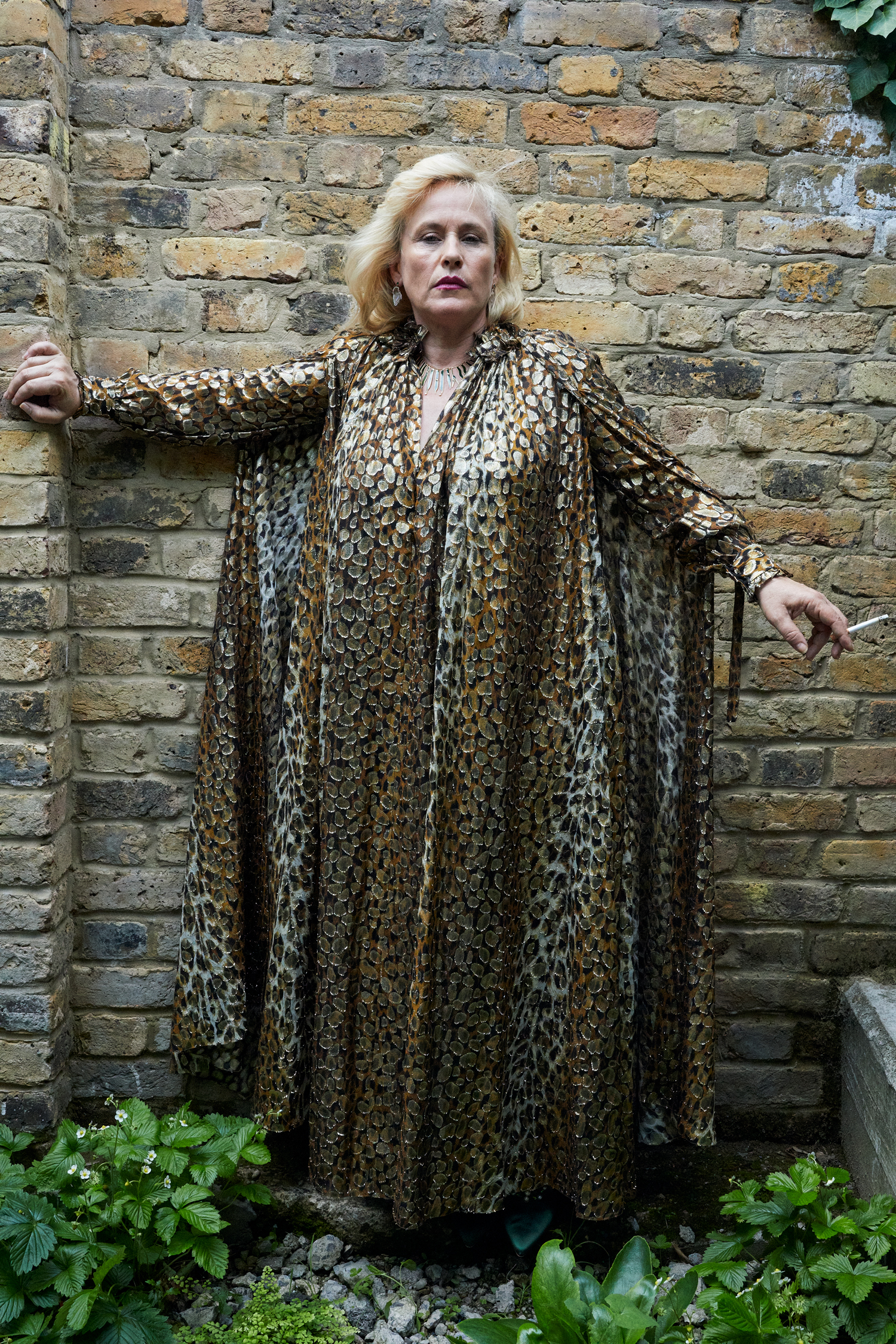
Dress by CELINE BY HEDI SLIMANE. Earrings by AMRAPALI. Necklace by SOLANGE AZAGURY-PARTRIDGE. Shoes by MANOLO BLAHNIK.
ARQUETTE: We both grew up in this business. We both had parents who were working actors, and who probably instilled in us a feeling of gratitude and responsibility—how important the crew is, how much all the behind-the-scenes stuff matters. But on Dannemora, I didn’t have to do a lot of the heavy lifting I’ve had to do on other jobs because you were doing it. You were doing your job completely as a director. You were cognizant of everything—wardrobes, signs on the walls, sounds that were happening, making space for us to experiment and try things out. I have rarely in my life had the time to just talk about a scene, and it’s really unfortunate because that’s the way it’s supposed to be.
STILLER: Do you feel like your sense of self has colored who you are as an actor?
ARQUETTE: My mom used to say to me all the time, “When you get up in the morning, ask God, ‘Who is Patricia?’” She really wanted me to feel who I am. I think deep down, I’ve had a strong sense of self under many layers of people-pleasing and trying to figure out how to get my needs met without upsetting anybody else.
STILLER: A lot of actors disappear into the fantasy of the characters they play or the life of being an actor. Sometimes they’re less in touch with reality. But you seem like a very evolved person to me. That’s unique in the acting world.
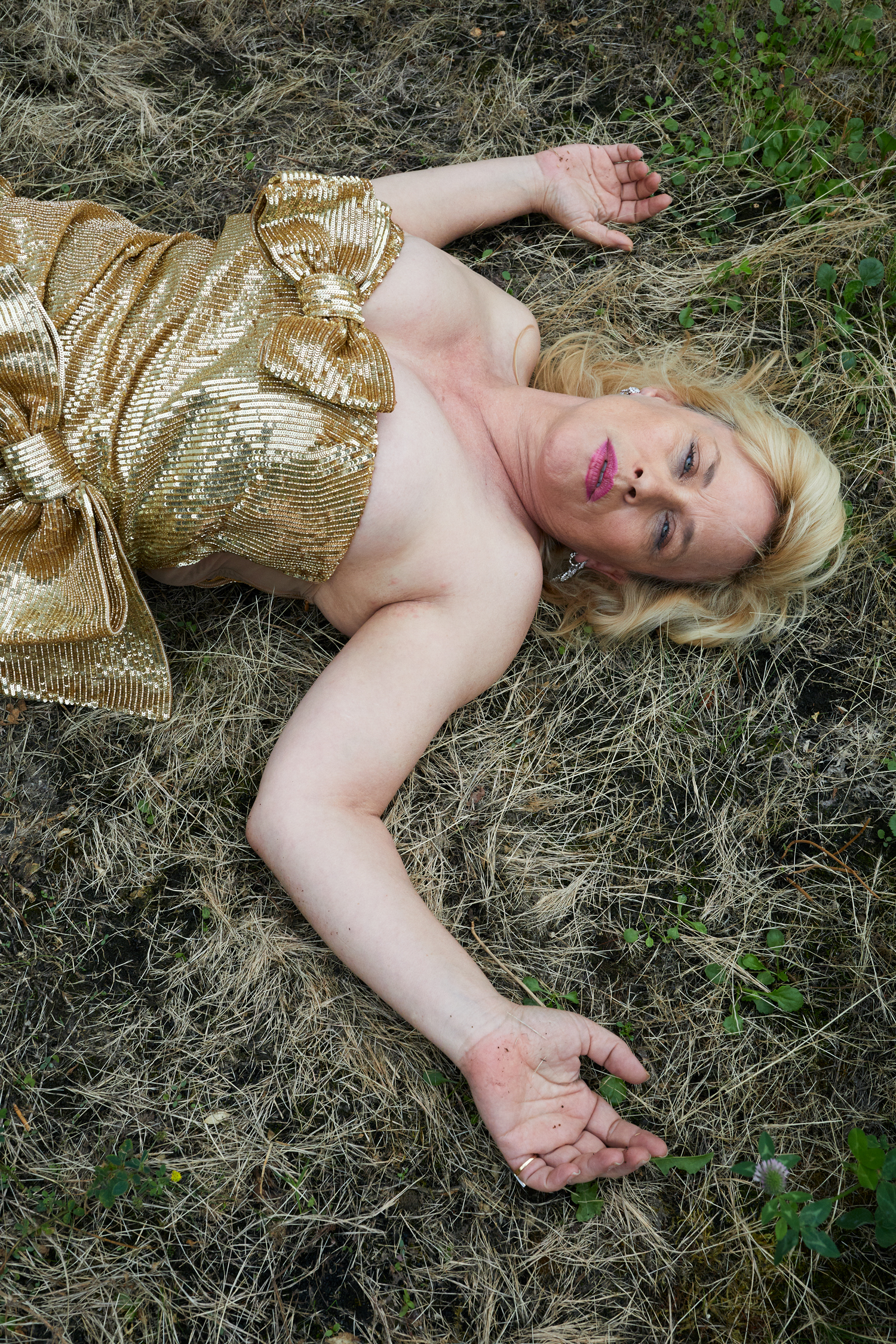
Dress by MOSCHINO COUTURE. Earrings by DIOR FINE JEWELRY. Ring by JESSICA MCCORMACK.
ARQUETTE: I was raised by a struggling actor, so I never bought into the story that being an actor was this “party life,” and that it was better than what everybody else did. I never really trusted success, because I’d never really seen an example of it being easy. I didn’t know if I wanted to be an actor or a midwife, but I knew I was more afraid of being an actor. I decided to give myself a year to fail every day at trying, because more than being an actor or being a midwife, I really wanted to be a brave person.
STILLER: How old were you?
ARQUETTE: I was 18.
STILLER: At 18, I kind of knew what I wanted to do, but I didn’t know why I wanted to do it. You don’t seem to be concerned with outcomes—you just do what you feel is right at the time. I mean that in your acting choices, but also in the activism work you do, how you speak out when a lot of people in this business don’t want to because they’re concerned with how it will affect them.
ARQUETTE: They’re not wrong to wonder that. I’m not going to judge them. But actually, this friend of mine who’s a businessperson was saying to me yesterday, “It’s not a great idea to be political.” And I said, “I understand that argument, but you have to call out what is not appropriate, or it becomes normalized.” A bunch of actors came out and said, “Hey, Georgia, these abortion bans are wrong,” and they got a bunch of crap, and now these corporations are saying it’s not acceptable. Sometimes you have to be willing to take a chance. Other people will follow.
STILLER: I think you can get criticized as an actor, like, “You’re an actor. Just be an actor.” But the fact that you have a voice and the opportunity to reach a lot of people is, in a way, a responsibility.
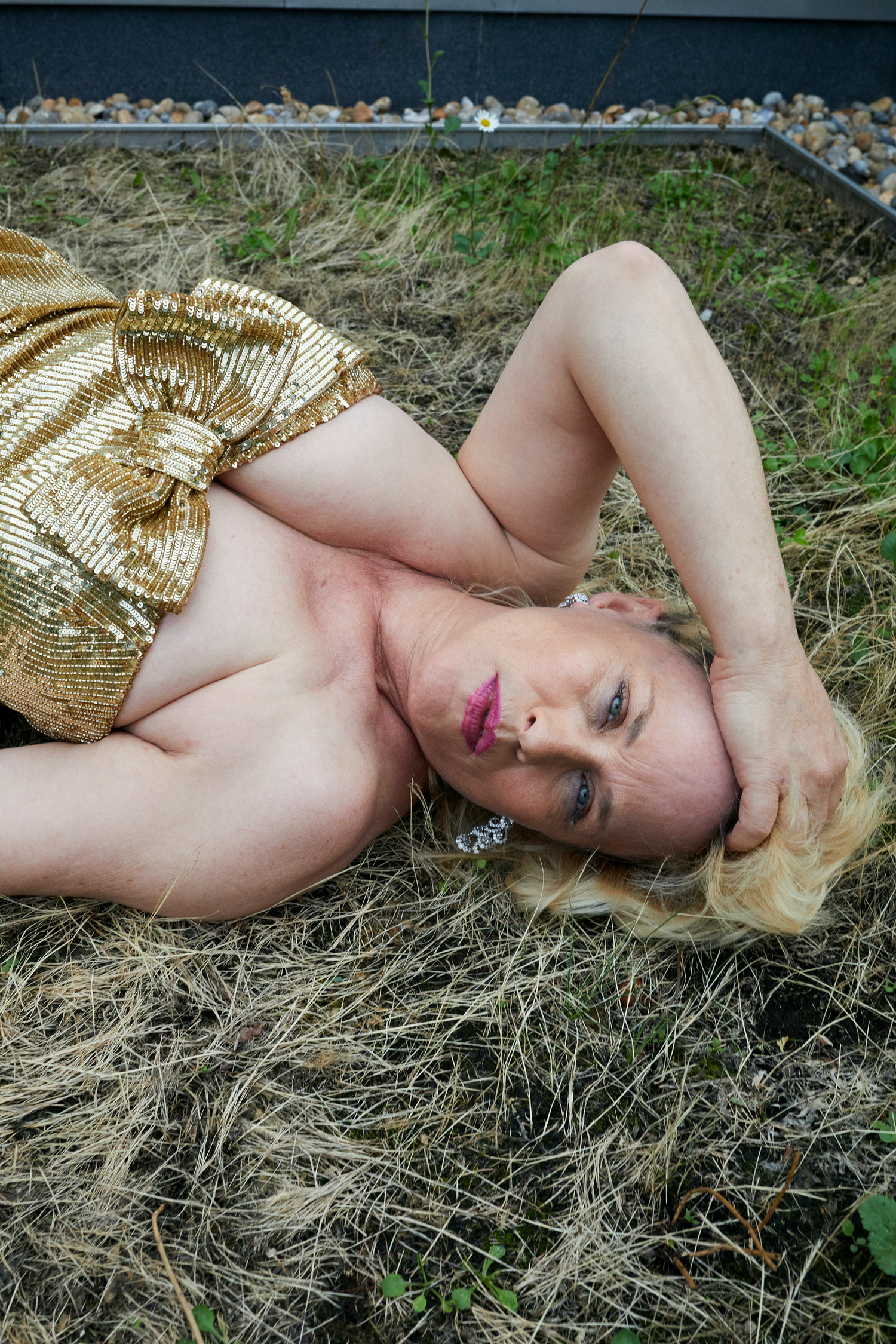
ARQUETTE: When people say to me, “We don’t want actors to speak up,” it’s like, “Are you a politician? Then why do you get to have an opinion? I pay my taxes! My family fought in the Revolution and the Civil War! I’m going to talk about America!”
STILLER: My family did not fight in the Revolution. They were peasants in Europe.
ARQUETTE: That’s okay!
STILLER: The reality is, we all have a voice here in America. We’re a country of immigrants. Do you get tired of people asking you about your politics?
ARQUETTE: Sometimes I think people are making a judgment about me, or they want me to be their hero. There are moments where I’m super tapped-out because I’m trying to do a lot of activist work and I’m trying to be a mom and I’m trying to be an actor, and sometimes I just feel exhausted from all of it. I think people think I’m a better person than I am. I’m not that great.
STILLER: Let’s clear that up.
ARQUETTE: For starters, I’m a hoarder.
STILLER: Patricia Arquette is overrated!
ARQUETTE: As a human being!
STILLER: Knowing you, I don’t believe that. And balancing being a mother and having a career is extremely challenging, I’d imagine. I remember when we were shooting one day, and my son was in the school play and I really wanted to get to it, so I set up the camera and said to you, “Is it okay if I leave early before you guys do this shot so I can get to my son’s school play?” I felt so comfortable asking you that because I knew that you understood where I was coming from. It meant so much to me.
ARQUETTE: It’s a beautiful thing when your kids can express themselves through art. People care so much about the SATs, but finding your voice as an artist is what’s really important. Everything we buy has gone through the eye of an artist—through the design of a website, through the photographs of a thing, through the product itself. It’s a humongous industry, and we don’t prepare our kids for it. The whole system is ass-backwards.
STILLER: Are you ever going to run for office?
ARQUETTE: At one point I was thinking about it. Luckily, someone good was running so I didn’t have to step in. But I did talk to my family about it. They were like, “What do you mean we have to move to Palmdale?”
STILLER: Seriously, Patricia. I’m not kidding.
ARQUETTE: People don’t like to hear this, but the reality is that you have to be good at compromise to get anything done in D.C. Not that I couldn’t do that, but I do have pretty strong beliefs, and I don’t know how good I would be at being in the middle.
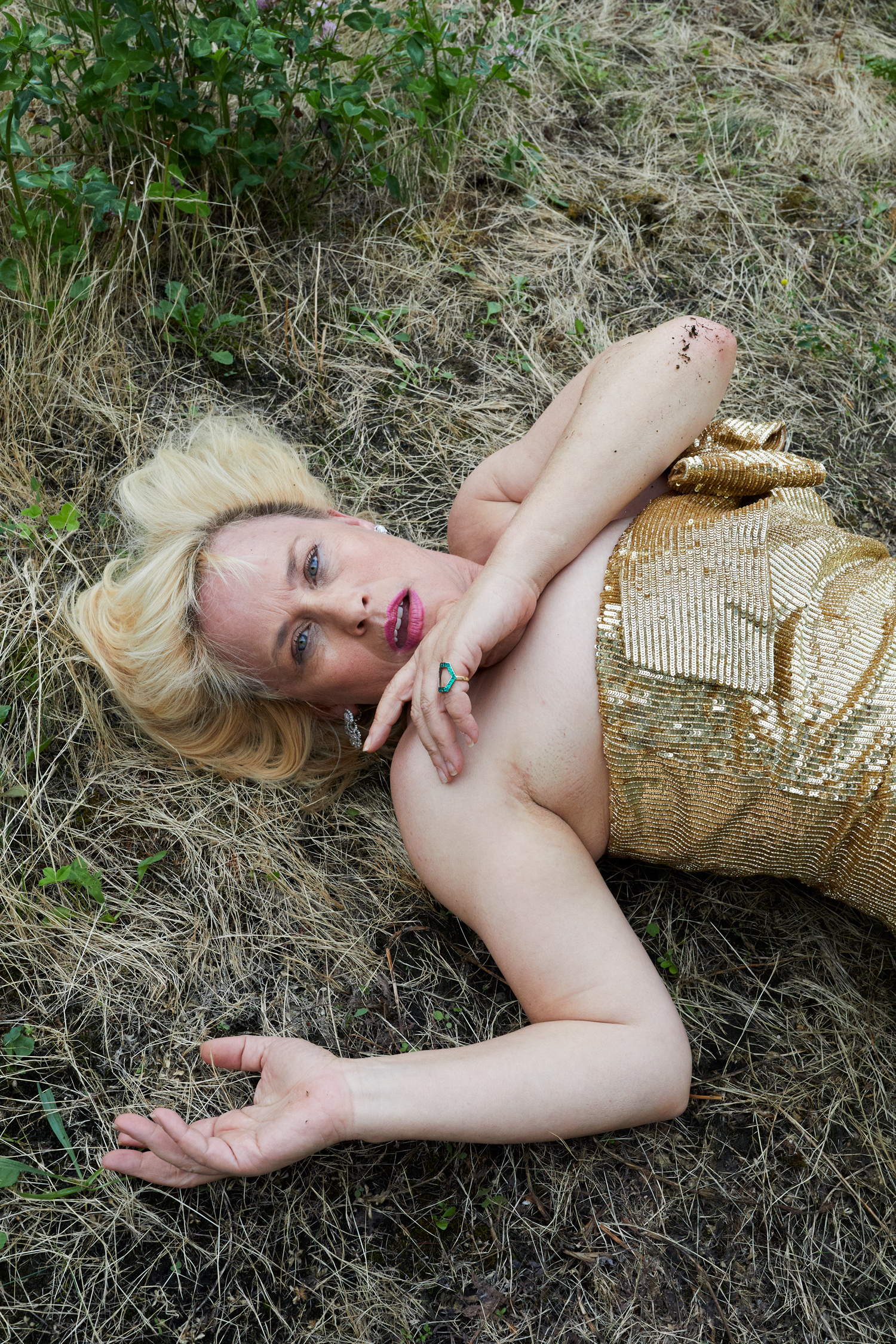
Dress by MOSCHINO COUTURE. Earrings by DIOR FINE JEWELRY. Ring by JESSICA MCCORMACK.
STILLER: We both had a day in D.C. recently testifying before congress [Arquette on women’s rights, and Stiller on the humanitarian crisis in Syria]. What did that feel like for you?
ARQUETTE: That was so scary. Getting ready for it, I had high blood pressure, which I never have.
STILLER: I was so nervous. It was surreal. Do you feel like you were able to get through to people who didn’t share your point of view?
ARQUETTE: I don’t know if I reached them or not, but one of them came up after and said, “You did very well. You’re a very scary witness for the other side.” I think that’s about the best one can hope for.
———
Hair: Laurent Philippon at Bryant Artists
Makeup: Lisa Butler using Marc Jacobs Beauty at Bryant Artists
Photography Assistant: Karin Xiao
Fashion Assistant: Josie Hall
Tailor: Alina Gencaite

